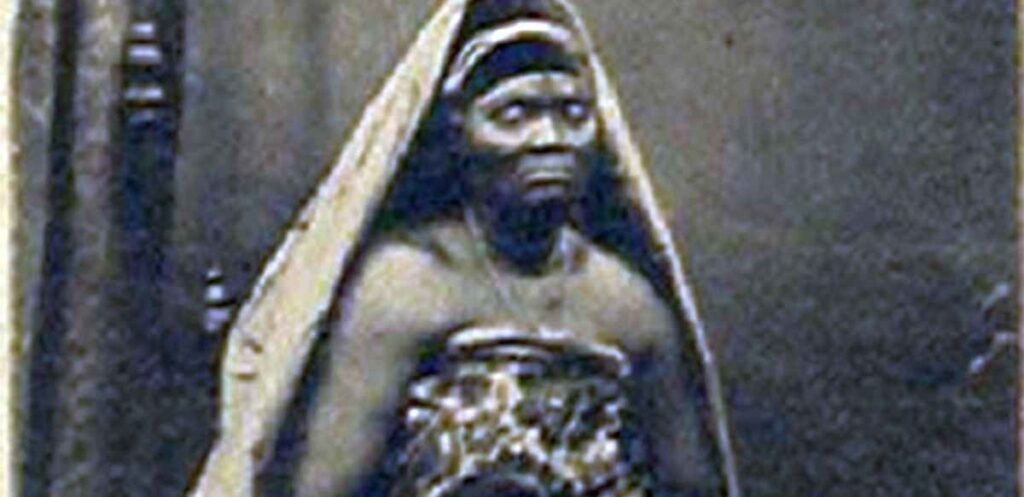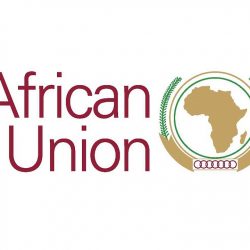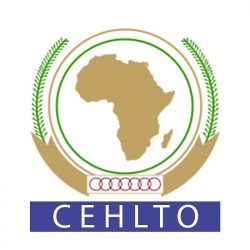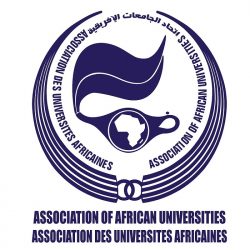
Efunporoye Osuntinubu Olumosa (circa 1805 – December 3, 1887). Some women have left their footprints in the annals of Nigerian history. One of such women was Madame Tinubu. She was born in the early 19th c. to a poor trading family in Abeokuta, the capital of Ogun State. After a period of business apprenticeship under her mother, she proceeded to Badagry, a town in the outskirts of Lagos.
Here, despite her lack of formal education, she soon established a flourishing and prosperous trade in tobacco and salt. Before long, she enlarged her coast and became the middle person in the slave trade, buying slaves from the interior and selling them to the Europeans.
By l846, as a prosperous business woman, she played hostess to Akintoye the king of Lagos who was sent packing by his nephew, Kosoko when he came to Badagry, where he met Madame Tinubu. Madame Tinubu there and then inaugurated a pro-Akintoye movement charged with the responsibility of reinstating Akintoye to the throne of Lagos. Thus, she became involved in the intrigue of Lagos politics then dominated by wealthy and educated men.
She rendered great assistance to Akintoye during this conflict with Kosoko by supplying him with arms, ammunition and money. She also sent large gifts to Egba warriors in Abeokuta in order to induce them to go to Lagos, Badagry and other areas to protect Akintoye’s cause.
As a result of the help she rendered, she was invited to Lagos when Akintoye was reinstated in 1851. She later moved her headquarters to Lagos, where she acted as a middle person between the expatriate population and the indigenous people and also the hinterland (Abeokuta inclusive).
In Lagos, she soon became very influential. Her influence at the court of Akintoye was so great and unmistakable that she was regarded as the power behind the throne, a belief which led to the revolt of two chiefs in 1853. When Akintoye was succeeded by his son, Dosunmu, in 1853, being a weak king, her influence grew more.
In the same year, she requested the help of the Egba in Abeokuta for Dosunmu in order to attack Olonowewe, a town on the sea coast of Lekki. The Egba responded by sending a force and the town was besieged and destroyed. In 1855, she accused the Brazilian and the Sierra Leonean immigrants for using their power and wealth to usurp the throne and for subverting native customs (thereby, showing nationalistic sentiments). This was because these immigrants wanted to be in a position to advise the king which she greatly detested.
The actions of Madame Tinubu were abhorred by the British especially the British Consul, Campbell. He supported the immigrants and he was looking for an opportunity to clip her wings. He therefore asked Dosunmu to send her packing from Lagos but Madame Tinubu organised an uprising in her support. There was a mass arrest of the organisers and Madame Tinubu and her supporters were sent packing from Lagos in May 1856. She fled to Abeokuta, her hometown.
At Owu, in Abeokuta where she lived, she enlarged her coast again and she started a prosperous trade in gunpowder, bullets and other weapons of war. Her inf1uence was immediately felt in the Egba politics in two ways. First, her role in the Dahomian invasion of 1863which led to the defeat of the Dahomians.
She can be referred to as the Boadicea or Elizabeth of the people of Abeokuta for she played a grand role in defending her. She sat at the Owu gate with her slaves and other men. Dressed like a warrior and ready to fight if possible she drove back all soldiers that returned to Abeokuta under the pretext of obtaining ammunition and provisions. Her house was used as a centre where arms and ammunition were distributed to the army and the Dahomians were defeated. She was given the title Iyalode (the first Lady) in 1864.
Second, in 1877, king Ademola died and was survived by his uncle and rival, Oyekan. But he was disliked by the chiefs because of the bad and inglorious reign of his father Jibodu. To crown it all, Oyekan was neither rich nor wealthy. However, he was a favourite of Madame Tinubu who helped him liberally by giving gifts to the chiefs, and thus won their favour for him.
He therefore became the king on January 18, 1879. This gave her the opportunity to exercise her power accordingly which was denied her in Lagos. She not only had the constitutional right to take part in the affairs of the Egba but the title conferred on her honour and prestige in the community, made this possible.
Madame Tinubu had no issue but all the Egbas were her children. She died on December 3, 1887 at the height of her popularity and a grand burial was accorded her. Today in Abeokuta, a monument is named after her in Abeokuta and it stands at the town square, Ita Iyalode (Iyalode square).
In Lagos, she is fondly remembered in the form of Tinubu Square which is very popular in Lagos State. She will forever be remembered for her motherly care, virile qualities and philantropism in Nigerian history.



